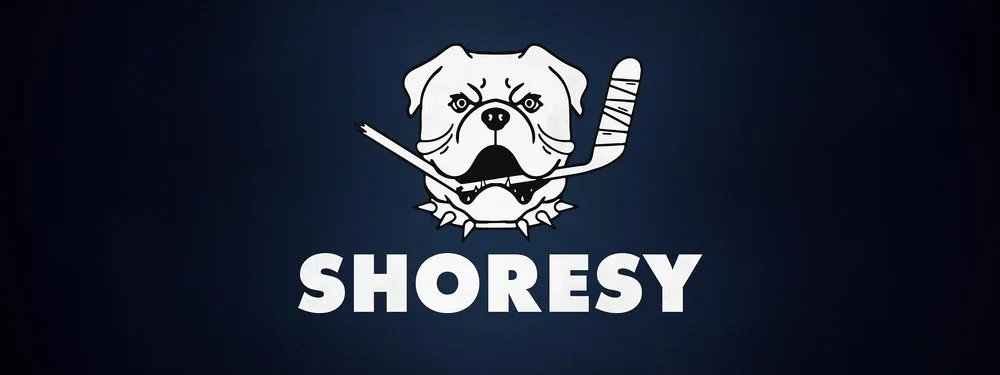
BLOG
#4: Zara Fragrances
This week’s pick in my 52 recommendations is Zara fragrances. They’re easy to test in-store, easy to replace, and low-commitment enough that you can experiment without overthinking it. If you like rotating scents or matching fragrance to season, outfit, or mood, Zara makes that simple. It’s a practical reminder that smelling good doesn’t need to be complicated or expensive.
Most colognes from designer brands cost what they cost because of the name on the bottle. Zara figured out that most people don't actually care about prestige as long as the scent is good. Their fragrances run between twenty and forty dollars and some of them are near-duplicates of much more expensive scents because they work with legitimate perfumers, including Jo Malone and others from the Spanish perfume house Puig. The variety is solid too. Fresh daily wear stuff, heavier evening scents, seasonal releases. I rotate through three or four of them depending on mood and occasion. None of them smell cheap. The longevity isn't amazing compared to luxury fragrances, but at these prices you can spray liberally without guilt.
The trick is ignoring the prestige game entirely. You're buying liquid that smells good, not a logo or a fancy box. Walk into any Zara store and there's usually a fragrance section, or browse online at Zara's perfume section for men or women. If you want to research specific scents before buying, Fragrantica has reviews on basically every Zara fragrance ever made.
#3: Shoresy
Spinoff of Letterkenny, but you don't need to have seen Letterkenny to enjoy it. The premise is simple: a foul-mouthed hockey player joins a terrible team in Northern Ontario and tries to make them not terrible. What makes it work is the dialogue. Fastest chirps you'll ever hear. Jokes land before you've fully processed the previous one. The writing is dense in the best way.
I put this on when I need something that doesn't require emotional investment but still makes me laugh out loud. The characters are surprisingly well-developed for a comedy that's essentially about hockey insults. Three seasons so far, short episodes, easy to binge in a weekend. It's not trying to be deep or meaningful. It knows exactly what it is and executes it perfectly.
Sometimes that's all you need from a show. Available on Hulu in the US, Crave in Canada, or you can buy episodes on Apple TV and Prime Video.
#2: AquaFlask
Filipino brand, fraction of the Hydro Flask price, basically the same quality. I have the 32 oz version and it keeps water cold for a full day even in Thai heat, which is really the only test that matters. The customization options are fun if you care about that sort of thing. You can pick your color, lid type, and add accessories like silicone boots and different caps. The silicone bottom cover is actually useful because it prevents that annoying metal clang when you set it down and protects against dents. I've dropped mine on concrete more times than I'd like to admit and it still looks fine. The knockoff insulated bottle market is huge, especially in Asia, but most of them fail within months. Seals stop sealing, insulation stops insulating.
This one's lasted two years and I don't see it dying anytime soon. AquaFlask started in the Philippines and has expanded across Southeast Asia, Dubai, and beyond. You can order from their official website, find them on Lazada Philippines, Shopee, or check Zalora if you want official retail. If you're in the region, they're in most malls now too.
#1: Mark Ryden Backpacks
I bought a Mark Ryden backpack for around forty dollars on Lazada a few years ago, expecting to replace it within a year. It's still going strong after several international flights, countless airports, and being stuffed to the gills with souvenirs. The brand is Chinese and nobody outside of budget travel circles has heard of it, which is exactly why it's so affordable. The build quality punches way above its price. YKK zippers, which actually matter because cheap zippers are usually the first thing to fail on bags. The material is legitimately waterproof, not that "water resistant" marketing speak that means nothing when it actually rains. Fits my 14 inch MacBook Pro in a padded sleeve with room to spare.
The sizing is perfect for carry-on, so I've never had to argue with a budget airline gate agent about checking luggage. There's a USB charging port built in, which I honestly rarely use, but it's there if you want to run a cable from a power bank inside the bag. The back panel is padded and breathable, which helps in tropical heat. I've recommended this to probably a dozen people who were spending three times as much on name brand bags that do the same thing.
You can find them on the official Mark Ryden website, Amazon, or if you're in Southeast Asia, check Lazada or Shopee where prices tend to be lower.
A Year of Recommendations
In 2026, I’m starting a simple year-long project: 52 Recommendations.
One recommendation per week. About 100–150 words. No lists, no hype, no pretending I’ve “partnered” with anything. Just practical stuff I actually use or enjoy and think is worth passing on. A bag that’s held up longer than expected. A show that’s easy to throw on after a long day. A small habit that quietly makes life smoother.
The bar is straightforward. You should be able to read it and then go try the thing yourself. Buy it, watch it, use it, or skip it with enough info to decide quickly. If there’s a short story behind it, I’ll include it, but usefulness comes first.
One thing. Once a week. All year.
Clothes Have Been Donated!
Collected 250kg of clothes last month! After sorting, several boxes went to migrant communities in #ChiangMai through the Shan Youth Power program, helping both kids and adults. Huge thanks to everyone who donated! ❤️ If you're in CM and have more clothes to give, DM me! 🙏♻️
More from Hua Hin
Hua Hin isn’t just another beach town in Thailand—it’s got history, charm, and a vibe that balances laid-back beach life with a touch of sophistication. Whether you're thinking about a weekend escape from Bangkok or just curious about this coastal gem, here are some fun facts about Hua Hin that might surprise you.
1. Thailand’s OG Beach Resort
Before places like Phuket and Samui became international hotspots, Hua Hin was the beach destination in Thailand. Back in the 1920s, King Rama VII built his summer palace here, and ever since, it’s been a go-to retreat for Thai royalty and Bangkok’s elite. That’s why you’ll still find a more refined, old-school vibe compared to the party-heavy islands.
2. Home to the Longest Golf Course in Thailand
If you're into golf, Hua Hin is a paradise. The Royal Hua Hin Golf Course, built in 1924, is Thailand’s oldest 18-hole course and still one of the most scenic. Bonus points: it's right next to the train station, which itself is one of the most picturesque in the country.
3. It’s Got a Vineyard—Yes, Really
Thailand and wine? Sounds like a weird combo, but Monsoon Valley Vineyard in Hua Hin is proving that tropical winemaking is a thing. Set in rolling hills just outside the city, it’s a spot where you can sip Thai wine while surrounded by vineyards—something you don’t see every day in this part of the world.
4. The Night Markets Are Next-Level
While Thailand is known for its night markets, Hua Hin’s are especially fun. The Cicada Market brings in artsy, handmade crafts and live music, while the Tamarind Market is all about incredible food. If you want seafood fresh off the boat, the night market in the center of town is where you’ll find grilled prawns, fresh squid, and just about every Thai dish imaginable.
5. You Can Ride Horses on the Beach
Move over, jet skis—Hua Hin’s beaches are famous for horseback riding. Thanks to its royal history, the tradition of horses here is strong, and you’ll find locals offering rides along the sand, making for a totally different kind of beach experience.
6. It’s One of the Driest Spots in Thailand
While much of Thailand deals with heavy monsoons, Hua Hin gets less rain than most coastal areas, making it one of the best year-round beach destinations. Even in the rainy season, showers tend to be short-lived, which means more sunshine and fewer interruptions to your plans.
7. There’s a Train That Goes Straight to Bangkok
If you hate dealing with airport transfers, Hua Hin’s got you covered. Thailand’s Southern Railway Line runs right through town, and you can take a scenic 4-hour train ride straight to Bangkok’s Hua Lamphong station. Bonus: the Hua Hin train station itself is a historic landmark, with its classic red-and-white architecture making it one of the prettiest in Thailand.
Hua Hin is that perfect mix of relaxing and lively, with just enough history and uniqueness to set it apart from other beach destinations in Thailand. Whether you’re there for a short getaway or looking to slow things down for a bit longer, there’s plenty to love about this royal retreat by the sea.
Hua Hin: The Retirement Capital I Had to See for Myself
I knew what I was getting into. Hua Hin has a reputation, and it’s well-earned—this place is retirement central. The sidewalks are filled with slow walkers, the beach chairs are occupied by people who have been here since the '90s, and every second restaurant serves up some version of schnitzel with mashed potatoes. If you’re looking for nightlife, excitement, or—let’s be real—anyone under 50, this isn’t the spot.
But hey, I wanted to check it out. First and last time for sure.
To be fair, the beaches are decent, and there’s a certain charm to the old-world, laid-back vibe. The seafood is fresh, and the night markets aren’t bad if you’re into browsing knockoff watches and elephant pants. If I were 70, I’d probably love it. But I’m not. And after a few days of watching the early bird dinner crowd shuffle through European bistros, I was ready to move on.
Hua Hin? Been there, done that. No need to return.
I Got Instagram
Alright, I caved—I got Instagram. Posting on the blog was becoming a hassle, and since I’m not traveling as much these days, I figured I’d join the masses. It’s mostly me and Cooper, so if you’re into cute French bulldogs, give me a follow and say hey: https://www.instagram.com/degen.11/
I’ll still keep this site going, but it’ll be more text-focused—think writing, my portfolio, and an archive of travel shots.
250kg of Clothes, One Big Thank You
Sometimes, the simplest things make the biggest impact. Over the past few weeks, we pulled together 250kg of clothes for Child’s Dream Foundation, and now they’re on their way to families who actually need them.
This wasn’t just a dump-run of old stuff—these are clothes that’ll keep people warm, that’ll be worn daily, that actually matter. And it only happened because a whole lot of people showed up, donated, and made it happen.
So, huge thanks to everyone who pitched in. Whether you dropped off a bag, spread the word, or just helped move all that weight—this was a team effort. Feels good to do something real.
The Collar
Cooper's dealing with an eye infection, so he's rocking a collar—which, unsurprisingly, he’s not thrilled about. The eye drops every two hours are getting easier with practice, but I totally get it—eye drops are the worst. Fingers crossed he’s all good in two weeks!
2025 Goals, Resolutions, Whatever
Every year, I scribble down a mix of goals, dreams, and random "let's see if I actually do this" ideas. Call them resolutions, plans, or just things I hope don’t stay in my head too long—they’re my way of keeping life interesting. This year’s list is all over the place, from fixing my balcony to exploring new corners of the world. Some goals are about leveling up, some are about tidying up, and a few are just about enjoying the ride. Here’s what I’m aiming for in the year ahead.
Visit a new country: Papua New Guinea, Solomon Islands, New Caledonia, Bangladesh, Bhutan, or Timor-Leste
Spend a week at a resort in Thailand (Phuket or Hua Hin)
Read 12 books throughout the year
Get a new built-in walk-in closet
Stretch every night (continuation from 2024)
Donate 50 kg of clothes to charity
Fix the water problem on my balcony (Condo above me is leaking and soaking my drywall ceiling, just haven’t gotten around to addressing it)
Have all the drains in my condo replaced
Save $50,000 by the end of the year
Double my Bitcoin holdings
New Series for 2025 — “In 100 Words”
I’m starting a new blog series next year called “In 100 Words.” The idea is simple—cover anything and everything, but keep it tight. Each post will be exactly 100 words, whether it’s a random thought, some advice, or a quick story.
It’ll be short, easy to read, and (hopefully) worth your time. The first post drops in January, and I’m pretty excited to see where this goes.



































